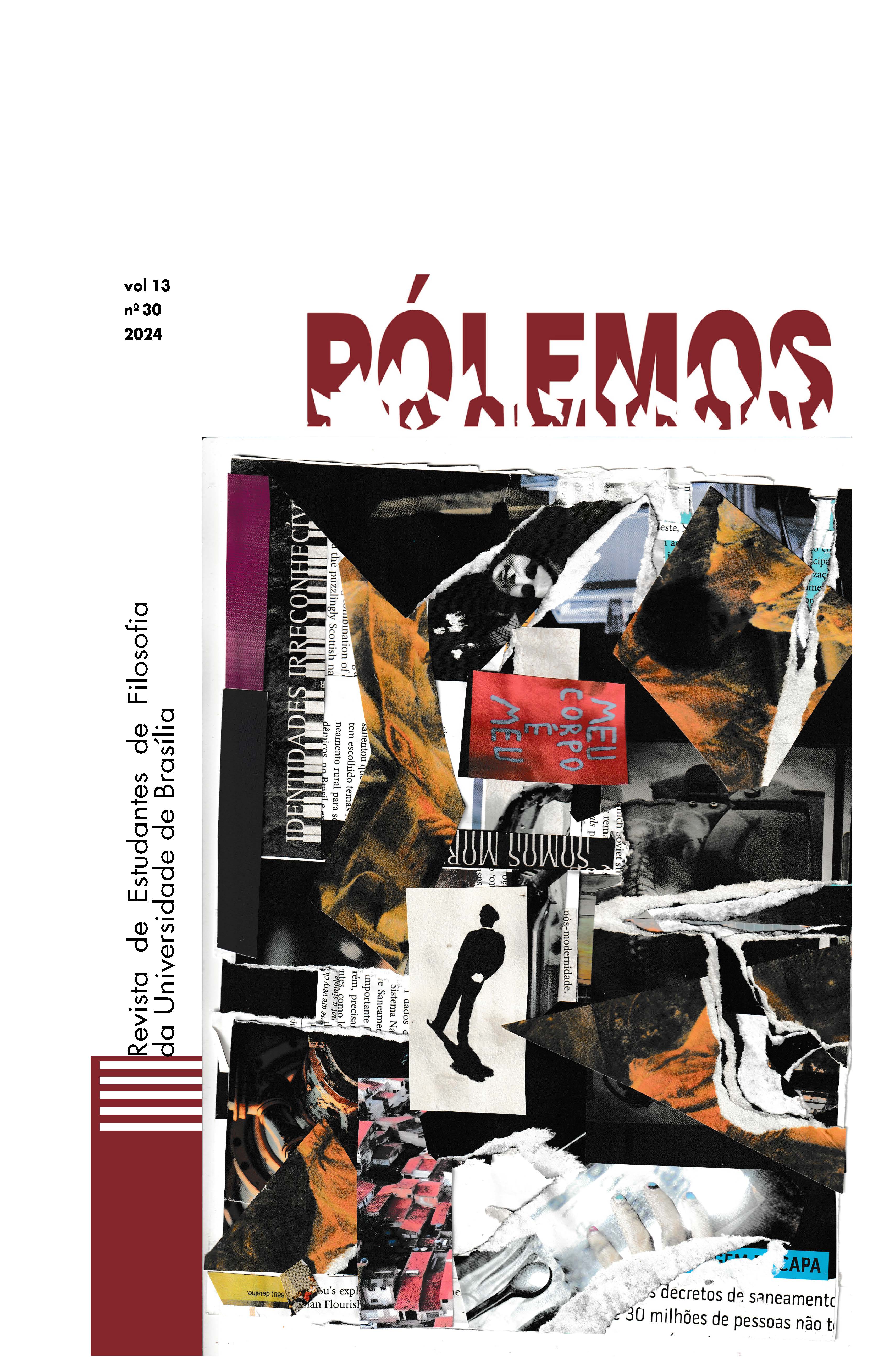INTELIGÊNCIA ARTIFICIAL, ÉTICA E TECNOLOGIA
a contribuição da filosofia da tecnologia para a discussão da ética em IA
DOI:
https://doi.org/10.26512/pl.v13i30.56920Palabras clave:
Inteligência artificial. Ética. Filosofia da tecnologia.Resumen
Os avanços da inteligência artificial e suas consequências trazem possibilidades de realizações positivas para a humanidade, mas também trazem ameaças. Tal potencial ambíguo exige um exame dessa tecnologia, a quem ela serve e que poder ela representa, abrangendo da ética à política, já que as mudanças trazidas implicam a necessidade de se investigar qual tipo de desenvolvimento da IA pode proporcionar um progresso sustentável e positivo para o indivíduo e a sociedade. Nesta relação do ser humano com máquinas que apresentam vasto conhecimento, capacidade de aprendizado e raciocínio, surge uma pressão sobre o ser humano para que encontre uma forma bem-sucedida de compartilhar o mundo com a inteligência artificial. Esse trabalho traz reflexões sobre ética e filosofia da tecnologia, na visão dos filósofos Mark Coeckelbergh e Andrew Feenberg, na busca de fundamentar uma resposta a essa questão
Descargas
Citas
COECKELBERGH, Mark. Ética na Inteligência Artificial. São Paulo/Rio de Janeiro: Ubu Editora/Editora PUC-Rio. 2023.
CUPANI, Alberto. Filosofia da tecnologia: um convite. 3. ed. Florianópolis: Editora da UFSC, 2026. Versão digital.
FEENBERG, Andrew. Transforming technology – a critical theory revisited. New York: Oxford University Press. Edição digital. 2002.
FEENBERG, Andrew. O que é filosofia da tecnologia. In: NEDER, R.T. A Teoria Crítica de Andrew Feenberg: racionalização democrática, poder e tecnologia. Brasília: Observatório do Movimento pela Tecnologia Social na América Latina/CDS/UnB/Capes, 2013 (2ª edição), pp. 49-66.
IBM. Como funciona um modelo LLM? Disponível em: https://www.ibm.com/br-pt/topics/large-language-models. Acesso em: 14 jun. 2024.
KAUFMAN, Dora. A inteligência artificial irá suplantar a inteligência humana? Barueri, SP: Estação das Letras e Cores, 2019.
NEDER, Ricardo T. Apresentação: o que (nos) quer dizer a teoria crítica da tecnologia?. In: NEDER, R.T. A Teoria Crítica de Andrew Feenberg: racionalização democrática, poder e tecnologia. Brasília: Observatório do Movimento pela Tecnologia Social na América Latina/CDS/UnB/Capes, 2013 (2ª edição), pp. 07-24.
OPEN AI. Introducing Chat GPT 4: limitations. Disponível em: https://www.ibm.com/br-pt/topics/large-language-models, acesso em 17 jun. 2024.
REINO UNIDO. Office for National Statistics. Which occupations are at highest risk of being automated? Publicado em 25 mar. 2019. Disponível em: https://www.ons.gov.uk/employmentandlabourmarket/peopleinwork/employmentandemployeetypes/articles/whichoccupationsareathighestriskofbeingautomated/2019-03-25. Acesso em: 23 set. 2024.
SUMPTER, David. Dominado pelos números: do Facebook e Google às fake news, os algoritmos que controlam nossa vida. Rio de Janeiro: Bertrand Brasil, 2019. Versão digital.
TURING, Alan M. Computing machinery and intelligence. Mind, v. 59, n. 236, p. 433–460, out. 1950. Disponível em: https://doi.org/10.1093/mind/LIX.236.433.
VASWANI, Ashish, et al. Attention is all you need. 31st Conference on Neural Information Processing Systems (NeurIPS 2017), Long Beach, CA. USA. Disponível em: https://proceedings.neurips.cc/paper_files/paper/2017/file/3f5ee243547dee91fbd053c1c4a845aa-Paper.pdf. Acesso em: 05 jun. 2024.
VERVAEKE, John; MASTROPIETRO, Christopher; MISCEVIC, Filip. Zombies in Western Culture: a twenty-first century crisis. Cambridge, UK: Open Book Publishers, 2017. Versão digital.
ZUBOFF, Shoshana. A era do capitalismo de vigilância: a luta por um futuro humano na nova fronteira do poder. Rio de Janeiro: Editora Intrínseca. Edição digital. 2021.
Descargas
Publicado
Cómo citar
Número
Sección
Licencia
Derechos de autor 2025 PÓLEMOS – Revista de Estudantes de Filosofia da Universidade de Brasília

Esta obra está bajo una licencia internacional Creative Commons Atribución-NoComercial-SinDerivadas 4.0.
Todos os trabalhos que forem aceitos para publicação, após o devido processo avaliativo, serão publicados sob uma licença Creative Commons, na modalidade Attribution-NonCommercial-NoDerivatives 4.0 International Public License (CC BY-NC-ND 4.0). Esta licença permite que qualquer pessoa copie e distribua a obra total e derivadas criadas a partir dela, desde que seja dado crédito (atribuição) ao autor / Ã autora / aos autores / às autoras.


